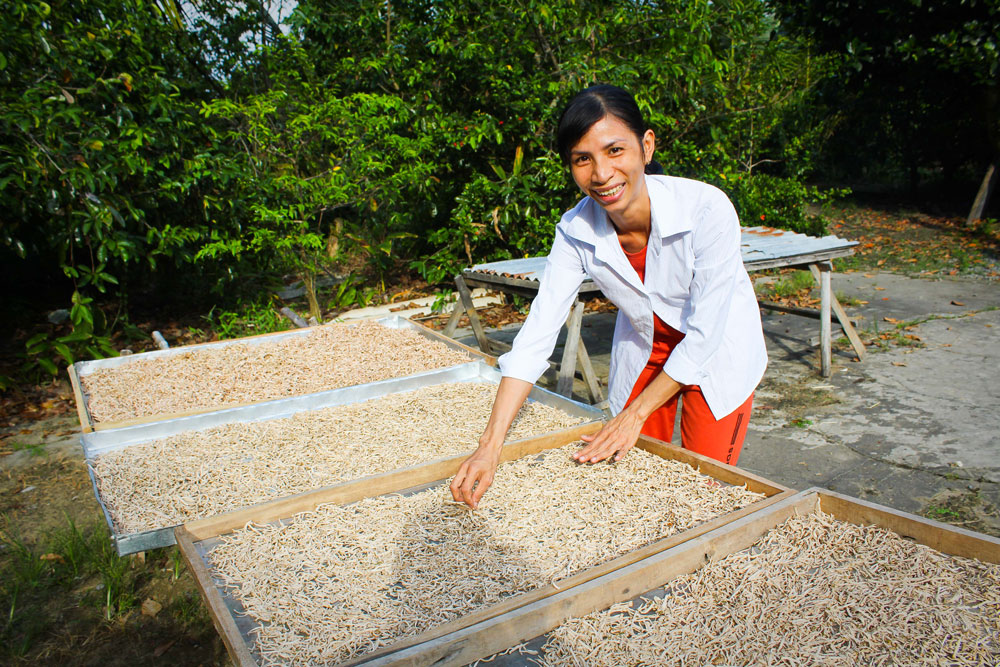Australian NGO Cooperation Program (ANCP)
Climate challenges are impacting small-scale farmers in the Mekong Delta, with flooding, saltwater intrusion and dry spells destroying vital crops in one of Asia’s largest food bowls.
Ms. Cao Thi Ngoc My is among thousands of rice farmers facing these issues in Soc Trang, Vietnam.
“There were times that we just needed sunny weather for one or two days to save our two hectares of rice. But then heavy rains and strong winds suddenly came and flooded the rice,” said My.
“Our paddy field was also hit by salt intrusion and drought. The annual flooding season, which brings much-needed water to rice fields, was lower than usual, creating water shortages. We always lived with worries.”
My knew she needed to adapt to the changing climate to ensure her farming future. And she had a plan. She had seen farmers in a neighbouring province growing a local variety of salinity-tolerant soursop (Annona glabra). The farmers grafted other high-yielding varieties of soursop onto the root plant.
My took out a micro-loan through Australian NGO Cooperation Program (ANCP) NGO Action on Poverty’s Microfinance Program. With the funds, she attended workshops on how to grow the new soursop varieties and grafted 500 soursop trees at her family’s farm.
When her soursop flourished, My faced a new problem – where to sell the additional crops? She had always sold her produce through middlemen, but this did not maximise her profits.
My’s solution was to take out another micro-loan. With this she bought a dryer and began making soursop tea. She also attended workshops on how to grow soursop to meet the Vietnamese Good Agricultural Practices (VietGAP) standard, which she said helped improve the quality of her product and reinforce customers’ trust in her tea.
Currently My produces and sells up to 35kg of soursop tea each month, earning over AUD$350 – more than double her income from rice farming, while also adapting to climate challenges now and into the future.

